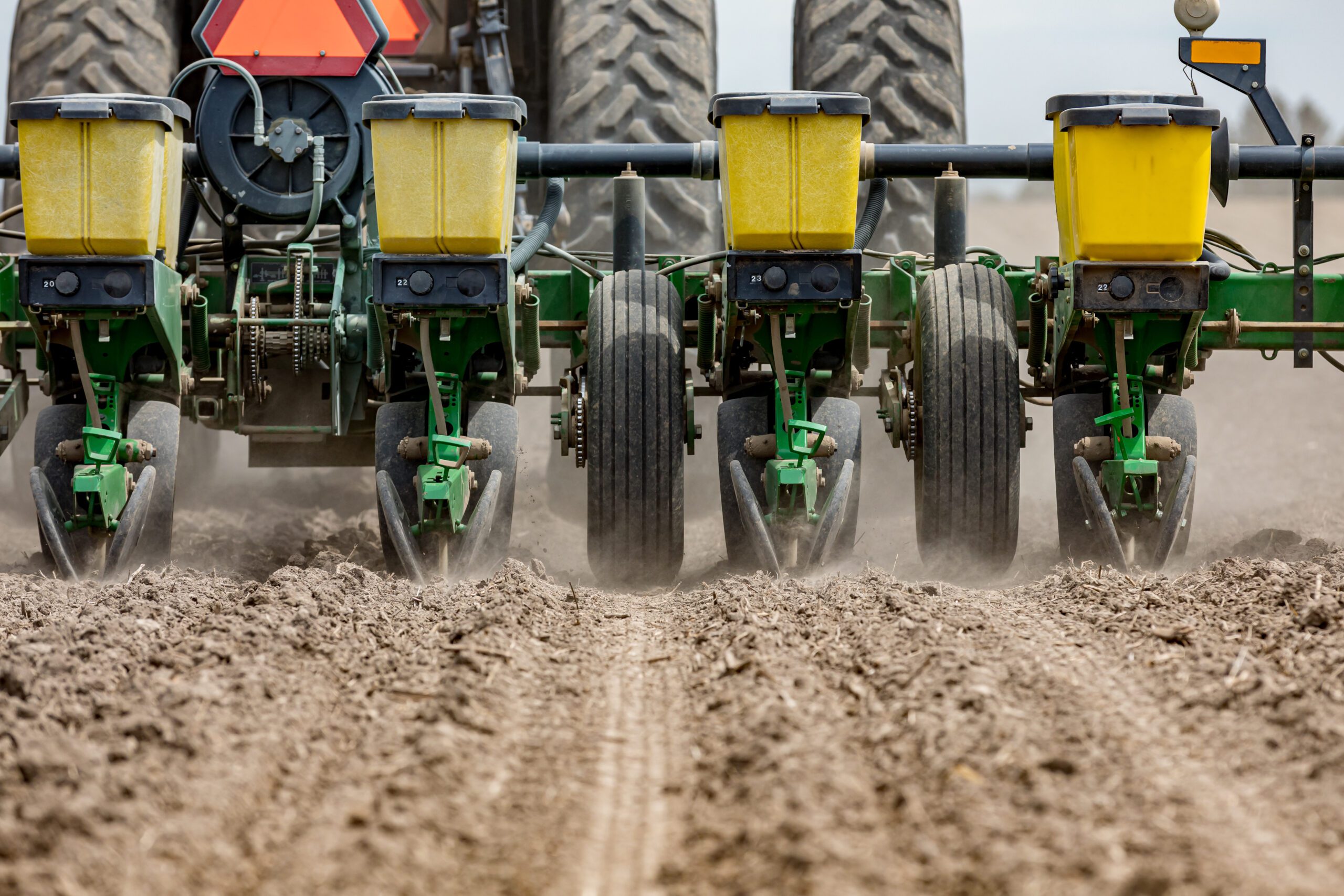Margaret A Smith, PhD | Agronomist
Jake Hansen | Corn and Soybean Agronomist
Corn Planting Progress
Corn planting progress is variable across the Corn Belt with some states behind and some ahead of their 5-year average planting progress. As of May 12, Iowa, Nebraska and Illinois were farther behind their average pace of planting intended corn acres than most of the region, while North Dakota and Ohio were ahead of their average planting progress. (See Table 1.)
TABLE 1. Corn planting progress across U.S. Corn Belt states, May 12, 2024
| Corn planting, 2024 | 5 -year average planting progress | Percent points difference from the average | |
| State | Percent planted | ||
| North Dakota | 22 | 15 | +7 |
| South Dakota | 32 | 40 | -8 |
| Minnesota | 56 | 56 | 0 |
| Iowa | 57 | 70 | -13 |
| Wisconsin | 40 | 38 | +2 |
| Michigan | 26 | 30 | -4 |
| Nebraska | 55 | 65 | -10 |
| Illinois | 42 | 56 | -14 |
| Indiana | 36 | 39 | -3 |
| Ohio | 36 | 24 | +12 |
| Missouri | 72 | 69 | +3 |
| Pennsylvania | 29 | 26 | +3 |
Source: USDA NASS https://www.nass.usda.gov/
Planting progress is not very far removed from the long-term averages, but there are very wet pockets in the Upper Midwest and more rain is forecast in the coming 10 days.
Long-term studies and trends illustrate that corn yield potential is reduced when planting is pushed into late May.
Adjusting Corn Relative Maturity (CRM) When Planting is Delayed
As planting is delayed, corn will develop and mature with fewer growing degree days (GDDS) than when planted early, so full-season hybrids can be planted later and still mature in good time. In the Northern Corn Belt, getting late-planted corn to maturity before frost can present a challenge. When planting after May 21-25, to increase your chances of best economic yield (combined grain yield and dry down), we suggest shortening your corn relative maturities by 5 to 7 days. Guidelines for late planting date adjustments vary a bit by individual state recommendations (Table 2.).
Organic growers planting into this May 21-25 planting window have likely already selected shorter-maturity hybrids.
For both conventional and organic farms, if corn planting is delayed beyond June 1-5, reduce maturities an additional 5-7 days or switch to soybeans. For June planting for silage, switch to very early corn maturities, forage sorghum or sorghum x sudangrass hybrids.
In the Southern Corn Belt, hybrid maturities can be held constant through June 1 planting, due to a longer growing season and less threat of frost damage in the fall.
Table 2. Corn Late Planting Guidelines
SOURCE |
DATES TO SWITCH CRM |
Adjusted CRM |
| University of Minnesota | May 21-28, May 29-June 4 | 5-7 days earlier, 8-15 days earlier |
| University of Wisconsin | May 21 | 7 days earlier |
| South Dakota State University | May 25, June 5 | 5 days earlier, 10 days earlier |
| Iowa State University | June 1 | Not defined (AL Seed suggests 5-7 days earlier) |
| Purdue University | Last week of May | Not defined |
Check your state’s specific late corn planting recommendations with the links provided, below.
- Considerations for late-Planted Corn, University of Minnesota UMN
- Dates to Switch Hybrid Relative Maturity to Maximize Grain Yield, University of Wisconsin
- Hybrid Maturity Decisions for Delayed Planting, Purdue University (Indiana)
- Interpreting Corn Hybrid Maturity Ratings, Purdue University
- Switching Corn Hybrid Maturities, South Dakota State University
- Late Corn Planting Options, Iowa State University
